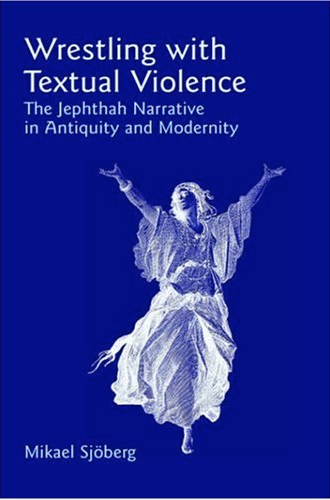Wrestling with Textual Violence: The Jephthah Narrative in Antiquity and Modernity
Original price was: £50.00.£19.95Current price is: £19.95.
Five main interpretative strategies are uncovered in this remarkable analysis: condemnation, identification, glorification, alienation and censure. Each strategy affects in different ways the reader’s assessment of power relations in the story and the reader’s own willingness to change.
A story of a judge who sacrifices his virgin daughter is of course an issue both in ethics and in gender studies. Such is the biblical narrative of Jephthah. Sjöberg undertakes a comparative analysis of six different versions of the Jephthah narrative: the biblical tale in the book of Judges, the Jewish telling in Pseudo-Philo’s Liber antiquitatum biblicarum (first century CE), Josephus’s report in his Jewish Antiquities (also first century CE), Handel’s oratorio Jephtha (1751), the British author E.L. Grant Watson’s novel A Mighty Man of Valour (1939), set in Australia, and the short story by the Israeli novelist Amos Oz, ‘Upon This Evil Earth’ (1981).
Five main interpretative strategies are uncovered in this remarkable analysis: condemnation, identification, glorification, alienation and censure. Each strategy affects in different ways the reader’s assessment of power relations in the story and the reader’s own willingness to change.
In a final move, Sjöberg embarks on a critical discussion of the programmes of Elisabeth Schüssler Fiorenza and Daniel Patte for an ethics of biblical interpretation. Sjšberg advocates an interpretative pluralism, arguing that biblical studies should stand in the service of the general public.
Additional information
| author | |
|---|---|
| authors | |
| editors | |
| isbn | |
| list price (paperback) | |
| page extent | |
| publication | |
| publication date | |
| series | |
| table of contenta | |
| table of contents | |
| version |


Reviews
There are no reviews yet.